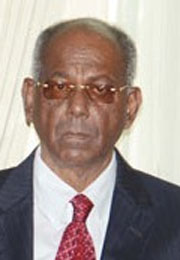A mere of two months after the Alliance for Change (AFC) and A Partnership for National Unity (APNU) polled sufficient votes to secure a single seat more than the People’s Progressive Party/Civic (PPP/C) in the National Assembly, questions have arisen as to just how effective a parliamentary opposition they are likely to be. On the face of it, the altered mathematics of the National Assembly suggests that the debates that precede the passage of legislation can now be far more purposeful, since, for the first time in the country’s post-independence history, the voting strength of the opposition is greater than that of the ruling party.
It is a circumstance that has given rise the view that there is now a much greater semblance of genuine democracy in the extant parliamentary arrangements. Hitherto, the ruling party could afford to sit back and watch the opposition spend itself in vigorous parliamentary presentations, the merits or otherwise of which made no difference to the outcome of the vote. In theory at least it is different now and speculation is already rife that the parliamentary parties – all of them – are now much more compelled to work together.
If it had been anticipated that the first real test of the collective will on the part of the two opposition parties to work together might have come during the 2012 budget debate which is only a few weeks ahead, that test has come much earlier and the evidence that it has left is

